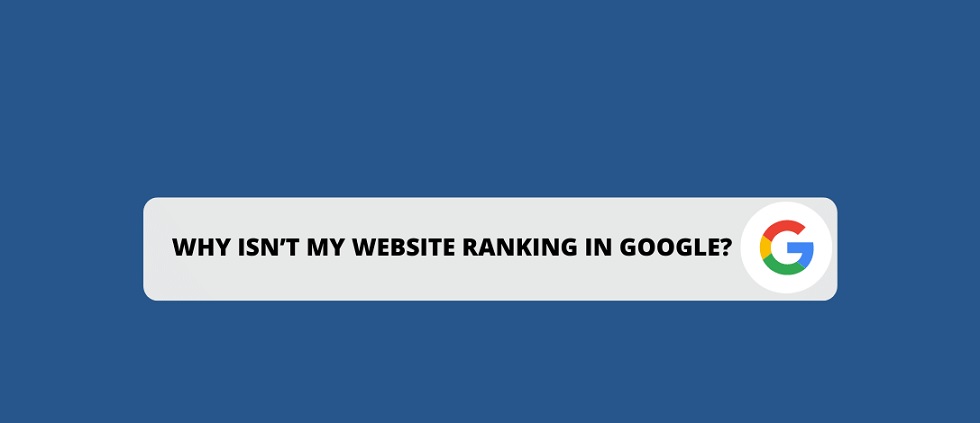Growing your website and business heavily relies on organic traffic. Research shows that over 50% of website traffic is linked to organic search. However, this data is meaningless if your website isn’t indexing in search results. You may wonder how to get your site, blog, and web pages indexed by Google. There are two options to consider. The first approach is the “tortoise” method, where you sit back and wait for gradual results, which could take weeks or even months.
Alternatively, you can make things happen now. This approach requires investing your time and energy in creating and sharing high-quality content for obvious reasons. Certain mistakes may be preventing your site from getting indexed.
It’s every business owner’s nightmare to search for their valuable keywords on Google and find their site nowhere to be seen. This can be extremely demoralizing. Let’s explore the top reasons why Google might not be indexing your website.
Lack of Mobile-Friendliness
If your site is not mobile-friendly, there’s a high chance it won’t be indexed. This is especially relevant since the introduction of mobile-first indexing. Even if you have curated highly relevant and compelling content, if it’s not optimized for tablets or smartphones, you’ll experience a decline in traffic and ranking.
Fortunately, making your website mobile-friendly is not a complex task. You can achieve this by implementing responsive design principles like CSS media queries or fluid grids. Ensuring users can navigate your site without any issues is crucial. Running your site through a Mobile-Friendly Testing tool can help you achieve this. Your site should receive a “passed reading” result to confirm its mobile-friendliness.
Insufficient Well-Written Content
There’s no doubt that well-written content is key to success in Google search results. If your site lacks substantial content that outperforms your competitors, it becomes a significant issue, preventing you from reaching the top 50 results. Studies suggest that content with less than 1000 words doesn’t perform as well as content exceeding 1000 words. Although word count is not a direct ranking factor, it’s important to focus on well-written, plagiarism-free, informative, and unique content that caters to readers’ needs. Presenting a distinct perspective from other sites in your niche is crucial. Additionally, using a spell-check tool can help you improve the quality of your content since Google prefers error-free results.
If you’re not addressing these aspects, there’s a chance that Google will prioritize other sites that do. Even if you follow all the search engine best practices but still fail to rank in the search results, content could be the reason. Working on improving your content is necessary for both indexation and ranking.
Slow Loading Speed
If your site has a slow loading speed, Google is less likely to feature it in its index results. Several factors can contribute to slow loading times, such as excessive content on a page or outdated servers with limited resources.
To improve your loading speed, you can utilize tools like Page Speed Insights. This tool analyzes your web pages and identifies areas that need improvement. It focuses on performance factors that are crucial for faster loading, such as minimizing connections, leveraging browser caching, and reducing payload size. By addressing these aspects, you can enhance every aspect of your site’s performance.
Incorrect Meta Tags (Noindex or Nofollow)
Setting your meta tags to “no index” or “nofollow” can have negative consequences. If certain pages are affected by this setting, they won’t be indexed by Google’s crawler. Even if you use a page recovery plugin to create a page that was previously not indexed, it won’t be re-indexed. It’s crucial to check your meta tags before publishing any content or pages. Ensure that you use appropriate tags to prevent your hard work from going to waste.
Lack of Audience Engagement
Creating a user-friendly and engaging site is essential for boosting your SEO efforts. Search engines, including Google, rank sites higher if they provide a good user experience. It’s important to ensure that users don’t feel frustrated or overwhelmed when interacting with your site. Avoid long loading times and confusing navigation.
If you publish content without conducting proper research or keyword analysis, it could be a reason for not getting indexed or ranked. Identify content gaps and target relevant keywords. Additionally, make sure to link all your posts back to the main topic. Improving internal linking will help users navigate your site easily and demonstrate to Google that you provide quality results.
Missing Sitemap
Having a sitemap is crucial for website indexing. It serves as a list of pages on your site and helps search engines understand the content you offer. Use Google Search Console to get your pages crawled and indexed. Note that HTML sitemaps are no longer preferred; XML sitemaps are the current standard. Google determines the importance of pages through the sitemap, so it’s essential to submit it for crawling and indexing purposes.
Weak Technical SEO
Investing in technical SEO is vital for your site’s success. Be cautious about purchasing technical SEO services from unreliable sources. If you excel at technical SEO, both users and Google will appreciate it. If your site is not meeting core web vitals, technical SEO can help you address the issues. It’s important to conduct a thorough technical SEO audit to uncover and fix complex issues preventing indexation.
Consider learning technical SEO or hiring a specialist to tackle complex sites effectively.
Use of JavaScript for Content Rendering
Using JavaScript itself doesn’t cause indexing problems. The impact of JavaScript depends on each site and its implementation. However, certain JavaScript techniques can hinder crawling, such as cloaking. Avoid hiding your JavaScript or CSS files, as Google prefers to access them for crawling. Unblock any blocked files to provide full crawling access to Google.
Redirect Loop on the Site
A redirect loop can cause indexing issues. To diagnose and resolve this problem, analyze each site. Understand the reasons behind the redirect loop and take appropriate actions to rectify it.
In summary, to improve the chances of Google indexing your website:
- Ensure your site is mobile-friendly and optimized for different devices.
- Focus on well-written, informative, and unique content that exceeds 1000 words.
- Optimize your site’s loading speed using tools like Page Speed Insights.
- Double-check your meta tags to avoid setting them to “no index” or “nofollow.”
- Create an engaging user experience and avoid frustrating navigation.
- Submit an XML sitemap for better indexing.
- Invest in technical SEO to address core web vitals and complex issues.
- Use JavaScript wisely and avoid blocking JavaScript and CSS files.
- Resolve any redirect loops on your site.
By following these guidelines, you can significantly improve the chances of your website getting indexed by Google. It’s important to keep in mind that these factors are not the only ones influencing indexation, but they play a significant role in optimizing your site for search engines.
Remember, the world of SEO is constantly evolving, and it’s essential to stay updated with the latest best practices and algorithm changes. By implementing these recommendations and continuously improving your website’s content and performance, you’ll increase the likelihood of Google indexing your website and achieving better rankings in search results. Now, you have a clear understanding of the factors that can affect indexing your website. Take action, make the necessary improvements, and watch as your website gains visibility and organic traffic. Good luck!





